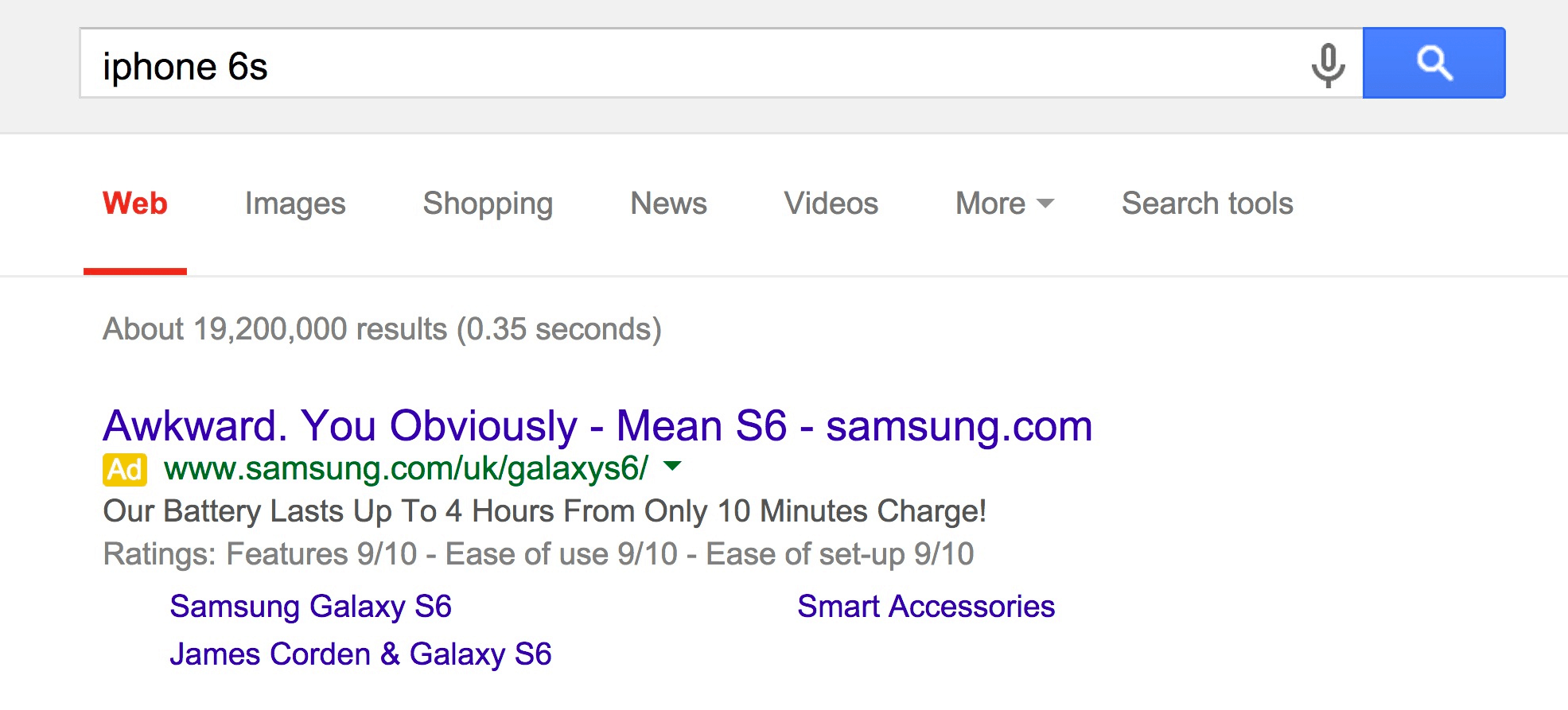PPC is a great way to gain contextual traffic about, near on enough, anything and from anyone. Just as 
Check if they are bidding on your own brand name
Before doing anything, it is important to see if you need to defend your brand name at all. Remember PPC campaigns cost money, so there is not much point making a PPC campaign for your own brand name without the need to defend against competitors, who haven’t yet bid for your brand name.
Adopt a high CPC
Whoever is bidding for your brand name and whatever it is about is irrelevant. Your brand name is sacred in PPC because it makes clear web users are searching specifically to land onto your website – anything but a click onto your website is a complete injustice. For this reason, it is advisable to adopt as high a CPC as possible, so that your advert always gains the number one spot of paid search result. Although this will be potentially quite expensive, it will deter competitors from competing against you, whilst maintaining the organic traffic to your website: the way it should be if web users search for your brand name.
Attack competitor adverts
99/100 times, you should be able to reach top spot of paid search by implementing a high CPC. If you cannot or want to further defend your brand name, you can use the advertising campaign you have created to attack the competitor advert that is bidding for your brand name. For example, if you was Ferrari and Aston Martin made a PPC campaign for Ferrari, the advert could read ‘Nothing beats Italian horsepower’, attacking the fact Aston Martin is not an Italian super car company.
Ultimately, the above should help to deter competitors from continuing brand name targeting with their PPC campaigns. It is annoying that Google allows anyone to bid on brand names. But, as much as it is annoying, it is also an opportunity to do it back. Therefore, whoever is bidding on your brand name, do it back to them. This could even result in a ‘truce’ between you and your competitor – whatever works best to prevent competition for your own brand name.



